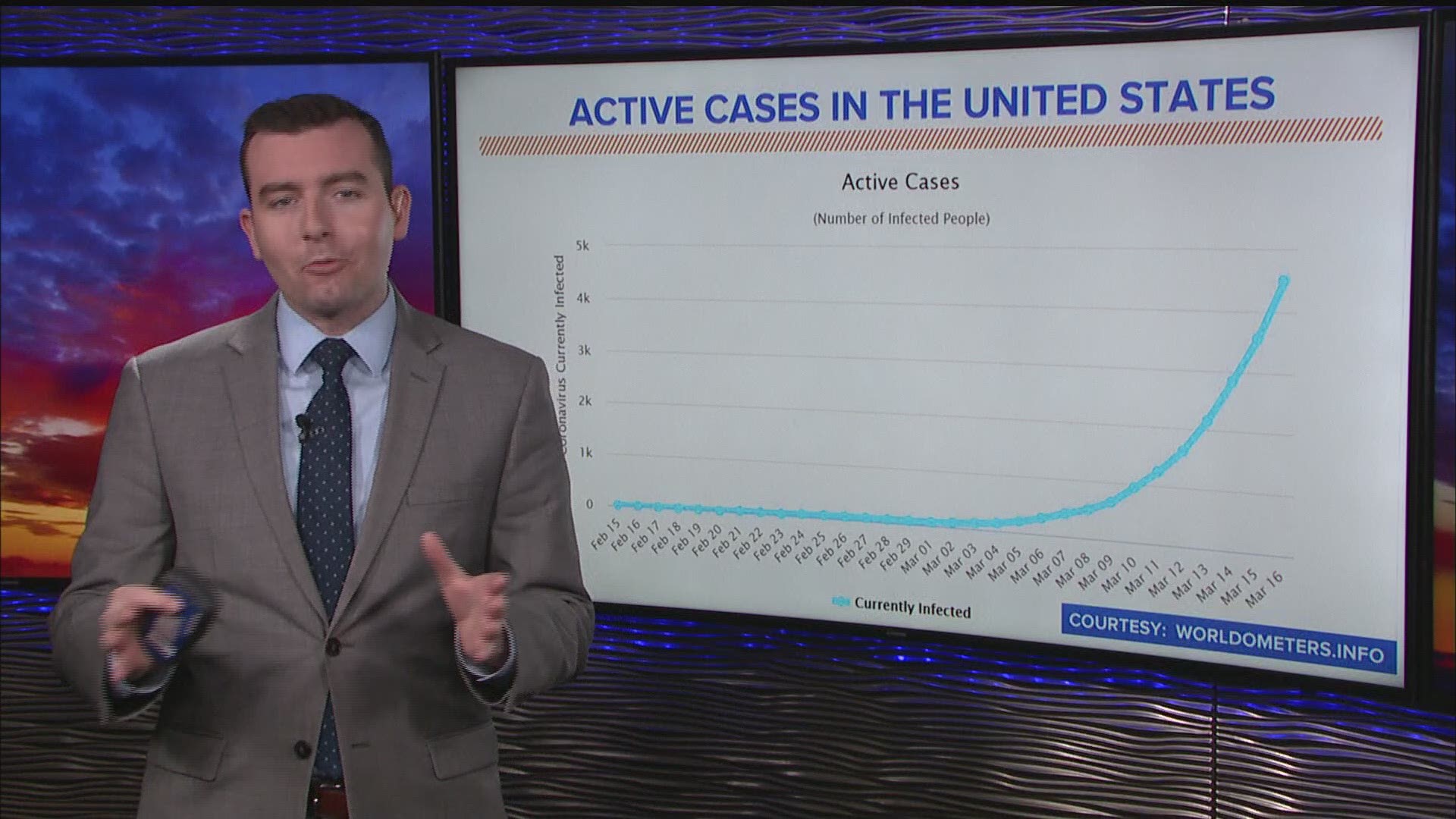AUGUSTA, Maine — Editor’s note: You are hearing the term ‘flattening the curve’ as a way to stem the tide of coronavirus cases. The above video explains what that means.
The Maine Department of Health and Human Services (DHHS) is temporarily increasing payments to a range of congregate care facilities to support their preparedness and response to the COVID-19 pandemic.
The additional $10.1 million in state and federal funds will support facilities that provide long-term services and support to children, older Mainers, and people with behavioral health disorders.
According to a press release, the funding will help ensure that these providers are reimbursed for their proactive response to the pandemic and can address cost increases related to COVID-19, with an emphasis on ensuring adequate direct care staffing and high-quality care of residents.
“This additional funding provides immediate relief that will help these facilities keep children, older Mainers, and people with behavioral health disorders safe in the face of the COVID-19 pandemic,” DHHS Commissioner Jeanne Lambrew said in a statement. “It’s one part of our comprehensive response to this public health emergency, which will also include further support for providers of critical health, residential and supportive services.”
RELATED: 55 people at Augusta Center for Health and Rehabilitation tested positive for COVID-19, coronavirus
Effective until May 31, 2020, DHHS is providing temporary increases to current MaineCare rates for private non-medical Institutions serving children, older Mainers, and people with substance use and mental health disorders.
These temporary rate increases build on the Mills administration’s earlier investments in nursing facilities and Intermediate Care Facilities (ICFs).
On March 26, DHHS announced that MaineCare will pay nursing facilities for extra costs associated with COVID-19, including staffing above and beyond customary levels to maintain proper ratios and to monitor residents and screen visitors, and supplies and PPE, such as face masks and gowns, beyond the amounts typically purchased. This extraordinary circumstance allowance, which takes the form of a temporary rate increase, builds on prior investments in nursing facilities in the biennial budget.
DHHS has implemented a similar extraordinary circumstance allowance for ICFs, to help address their costs related to responding to the pandemic.
Mills and Lambrew announced on March 30 that the Administration is also accelerating pay increases for personal care workers and expanding access to meals for older Mainers who are home-bound because of COVID-19.
RELATED: Portland announces volunteer food delivery program to help the elderly through coronavirus pandemic
The financial support for congregate living and long-term care facilities is coupled with proactive public health measures to support them:
- Earlier this week, Maine CDC, working with State licensing boards, reiterated in an email to all physicians and nurses licensed in Maine the actions that can be taken in long-term care settings to protect residents and staff. A special webinar also was held for medical directors of nursing facilities on best practices for prevention and response to the spread of COVID-19.
- Maine CDC also redistributed its Long Term Care Facility "LTCF toolkit" that includes a preparedness checklist for nursing homes and other LTCFs; a LTCF respiratory illness tracking chart; guidance for nursing homes from the U.S. Centers for Medicare and Medicaid Services; and a letter that LTCFs can use to inform families regarding actions being taken to preserve the health of facility residents and staff.
- The DHHS Office of Aging and Disability Services, Division of Licensing and Certification, and the Long-Term Care Ombudsman have conducted a survey of each nursing facility and are offering facility-specific technical assistance, with a special focus on small and rural nursing facilities and LTCFs that serve older adults and adults with disabilities.
- Since March 4, Maine CDC has hosted a weekly call for staff at congregate care facilities to provide updates on the COVID-19 situation in Maine and on published guidance relevant to them, and to answer questions from attendees. On a regular basis, Maine CDC staff have provided guidance and self-assessment tools to the Maine Health Care Association (MHCA) and the DHHS Division of Licensing and Certification (DLC). MHCA and DLC have distributed these to all Maine Long-Term Care Facilities.
- On March 9 and March 15, Maine CDC issued a number of recommendations for LTCFs through the Health Alert Network, including restricting visitors, checking staff for symptoms of COVID-19, canceling communal meals and activities, posting visual alerts, and ensuring hand hygiene supplies are available.
- On March 15, Governor Mills recommended that long-term care providers prohibit all visitors and non-essential health care personnel, except for certain compassionate care situations, until further notice.
- Maine CDC and the Maine Emergency Management Agency (MEMA) have prioritized requests from congregate care facilities for PPE.
--
At NEWS CENTER Maine, we’re focusing our news coverage on the facts and not the fear around the illness. To see our full coverage, visit our coronavirus section, here: /coronavirus
NEWS CENTER Maine Coronavirus Coverage
RELATED: Maine colleges look ahead to fall semester as remote learning continues during coronavirus pandemic
RELATED: Sens. King, Collins join bipartisan effort to help Maine farmers amid coronavirus, COVID-19

